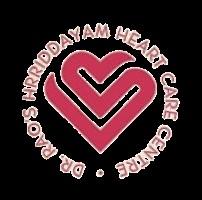













When a person suffers sudden, intense stress that has the potential to damage the heart muscle quickly, it can lead to broken heart syndrome, also known as stress cardiomyopathy or takotsubo syndrome. However, according to the top cardiologist in Indore, 30% of patients may not have any apparent triggers.

The signs of broken heart syndrome, a transient and treatable heart ailment, resemble those of a heart attack. However, unlike a heart attack, shattered heart syndrome occurs when your heart muscle weakens rapidly due to unexpected physical or emotional stress.
Because the signs of both conditions—such as shortness of breath and chest pain—are similar, you could believe you're suffering a heart attack. However, you typically heal quickly and entirely in broken heart syndrome without permanent heart damage or clogged coronary arteries.
Stress cardiomyopathy or Takotsubo cardiomyopathy are other names for broken heart syndrome. The Japanese word "takotsubo" refers to an octopus trap with a wide bottom and a thin neck. The shape of the pot is similar to the broken heart syndromerelated left ventricle of the heart.

Broken Heart Syndrome

Symptoms According to the top cardiologist in Indore, the adverse effects may manifest an hour or so after the physical or emotional stress. It is reversible and transient.

Chest pain that came on
Chest pains.
Breathing difficulty.
Dizziness.
Broken heart syndrome: Is it harmful?

Broken heart syndrome poses a serious risk to life. It can occasionally result in severe cardiac muscle weakening, which can lead to:-
Enlarged heart disease
Reduced blood pressure
Shock

Anomalies in the cardiac rhythm could be fatal
The good news is that if individuals are being treated by medical professionals knowledgeable about the syndrome, their condition can get much better rapidly. Even those with this illness who are gravely ill usually make a full recovery.

Women, particularly those over 50, have been affected in most cases. The estrogen in female hormones is the reason for this, as it protects the heart from the adverse effects of substances given under pressure. Women may be more susceptible to the impact of unanticipated stress when this estrogen level declines with age.
Those people, both sexes, who are over 50.
An increased chance of getting Broken heart syndrome is associated with diseases like anxiety, depression, and stress.
How is the syndrome of a broken heart identified?
Your healthcare provider will request several tests following a physical examination and a review of your medical history, including:-

• An electrocardiogram (EKG) to assess the electrical activity of your heart.
• Coronary angiography (which examines the arteries in your heart using an X-ray and dye).
• Echocardiography (which uses sound waves to provide moving pictures of the beating of your heart)
• A chest X-ray (shows the structure of your heart, lungs, and blood vessels).
• Magnetic resonance imaging (MRI) of the heart (produces both still and moving pictures of your heart).
•

When a dye is injected into the heart's left ventricle, an X-ray can be taken to determine the size and pumping capacity of this heart chamber.
Many medical professionals advise long-term treatment with beta-blockers or other drugs that block the potentially harmful effects of stress hormones on the heart to avoid another episode of broken heart syndrome.
Some people may be more susceptible to broken heart syndrome if they experience persistent stress. However, the heart's health can be improved by managing emotional stress, which may help prevent broken heart syndrome.
If you are searching for top Cardiologist in MP for heart disease treatment, Listen to Dr. Sarita Rao, she is a senior interventional cardiologist, apollo hospitals, Indore, as she explains the link between smoking and heart disease. Book your appointment now with the Best cardiologist in Madhya Pradesh, Call us now +91 9893925000 For more details visit online - https://drsaritaraocardiologist.com/


